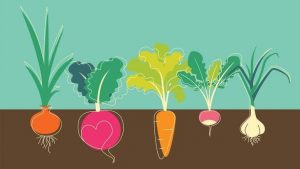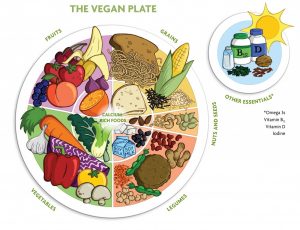What is plant based eating?
Plant based diets are those that focus primari ly on foods derived from plant sources, including fruit, vegetables, grains, nuts and meat substitutes, such as tofu, to name a few. People choose plant based diets for many different reasons including concern about the treatment of animals, health reasons, environmental concerns, personal tastes and also social pressure. These types of diets are becoming very popular but they do need some careful planning to ensure that you receive all the nutrients you require for good health.
ly on foods derived from plant sources, including fruit, vegetables, grains, nuts and meat substitutes, such as tofu, to name a few. People choose plant based diets for many different reasons including concern about the treatment of animals, health reasons, environmental concerns, personal tastes and also social pressure. These types of diets are becoming very popular but they do need some careful planning to ensure that you receive all the nutrients you require for good health.
There are various types of plant based diets, so you should make sure to choose the version that best suits you. These include being semi-vegetarian/flexitarian, pescatarian, vegetarian and finally, vegan.
Those whom follow plant-based diets tend to consume a wider variety of fruits, vegetables and pulses, so are more likely to reach their ‘five-a-day’ target, as well as consuming a higher intake of fibre, vitamins and minerals. Currently, only 1 in 4 adults and 1 in 5 children manage to achieve their five-a-day in the UK – the ‘five-a-day’ goal was set by the World Health organisation in order to help reduce the risk of certain cancers and cardiovascular diseases, so is essential to follow in order to remain healthy.
Why is it important to follow a healthy, balanced diet?
Unfortunately, ‘plant-based’ does not automatically mean ‘more-healthy’, particularly when it comes down to processed and packaged foods. For example, refined sugar, white flour and certain vegetable fat products labelled ‘plant-based’ should not make up the bulk of your diet. It is still important to ensure that the diet you are predominantly following has as many nutritional benefits as possible. Following a consistently well-balanced plant-based diet rich in wholegrains, fruit, vegetables, nuts and seeds can provide benefits, due to helping lower the body mass index, cholesterol levels and reducing the risk of developing diseases such as type 2 diabetes and heart disease, as well as protecting against some cancers.
There is a high risk of certain deficiencies and nutrients associated with plant based diets and veganism, therefore, key nutrients that should be focused on include protein, iron, vitamin B12, calcium and vitamin D as well as omega-3 fatty acids.
What types of food should vegans/those following plant based diets eat, in order to receive all nutrients? e.g. alternatives to animal and dairy products.
In the UK, adults are advised to eat 0.75g protein for each kilogram they weigh, daily. However, a more active individual requires more protein than those living a more sedentary lifestyle. A rough guideline suggests that men should aim to eat 55g protein and women should eat 45g of protein daily. Animal and dairy products provide ‘complete’ protein sources, however, in terms of plant-based eating, soy is the only complete protein source. However, beans, pulses, nuts & seeds are all also protein sources, but due to not containing all the essential amino acids, variation is key throughout the day and week so a mixture of both pulses and cereals are recommended. Nuts and seeds are great sources of proteins and essential fats – those which are particularly rich in protein include almonds, cashews, chia seeds and flaxseeds. For example, a 30g portion of almonds provides 6g of protein.
Calcium is important to maintain bone density and prevent osteoporosis – for vegans, sources include nut milks such as almond milk and soya milk as well as some vegetables such as broccoli and dried fruit. Calcium-set tofu and calcium-fortified bread are also options.
Iron is also an essential nutrient required and is especially important for menstruating and pregnant women. Iron can be sourced via many foods including lentils, chickpeas, beans, dried fruits, nuts, wholegrains and tofu as well as seeds including chia seeds, hemp seeds and pumpkin seeds. Iron from plant based foods is absorbed much less efficiently than iron in animal sources. Eating plenty of fruit and vegetables rich in vitamin C aid in the absorption of iron.
In order for vegans to obtain adequate vitamin B12, they will need to take a daily supplementation or eat foods that are fortified with vitamin B12 at least twice a day. Examples of foods that are fortified with vitamin B12 include some breakfast cereals and yeast extracts.
What is the importance of seeing a Registered dietitian for tailored advice?
It is important that people choosing to follow a vegan/plant-based diet receive correct advice from a reliable sources due to the lack of nutrients available within these specific diets – visiting a Registered dietitian will allow them to access advice tailored to their individual nutritional needs.
“Dietitians use the most up-to-date public health and scientific research on food, health and disease, which they translate into practical guidance to enable people to make appropriate lifestyle and food choices.” – BDA
This article was kindly written by Ella Goddard (Student) and edited by myself Debra Williams.
